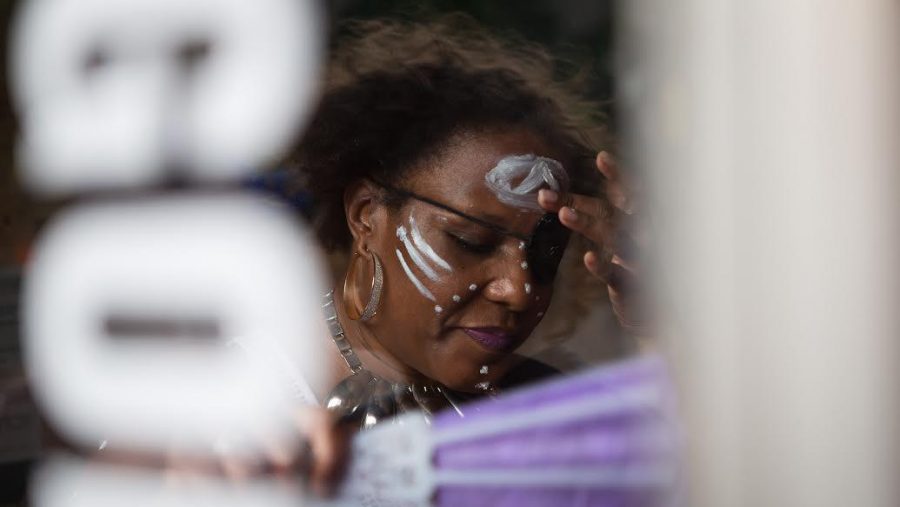Barber steps on stage with tires encircling his entire body. The tires are burdensome and clunky. That is the point.
The Englert will host a group of artists who have come together to create a piece of art, some would call it a wake-up call.
Dis/Unity: A Service is a performance piece reflecting on the current socioeconomic period. The show will draw from America’s difficult past, and future, specifically in regard to its marginalized people.
The first show is 7:30 p.m. today, at the Englert, 221 E. Washington St., and will continue through the weekend. The show will include audience participation and varying themes through live music — pop, jazz, and African — performance art, and dance.
Dis/Unity will touch on topics of slavery, racism, homophobia, racial identity, and cultural identity. There are different groups of people may who come together individually, but not together. Out of this, Dis/Unity was born.
“This project is about art, and social activism, and how we as the collaborators bring it together as the Dis/Unity: A Service performance,” said Baker-Tarpaga, a performance artist and choreographer.
It is a collaboration among artists, dancers, and musicians. Barber, Courtney Jones, Baker-Tarpaga, Heidi Wiren Bartlett, Raquel Monroe, and Wendell Gray II worked together to forge the work.
The scene is set when Barber, a visual artist, steps onto the stage with tires enveloping his body. The tires symbolize the oppression and racism that still surrounds people today.
“We’re putting our personal practices aside for seven to 10 days to come together in collaboration to tackle social injustices,” Barber said.
The artists hope that the audience will walk out of the theater entertained and educated. The goal is that the audience can have a conversation about racism — or anything — and not have it be taboo.
“We’re trying to create a conversation around social issues,” Barber said.
Because Iowa City is predominantly white, the collaborators thought it would be the perfect place to have the conversation about social injustice; it is not a thing of the past. You can’t merely paint over them, for paint dries, and once again we find ourselves staring at an ugly, old wall.
Englert marketing director Aly High believes the piece will help open doors to difficult discussions.
“It is disheartening, to say the least, that we still have to have these conversations in 2017,” High said. “I haven’t seen the current iteration of Dis/Unity: A Service, but I anticipate it will at times be challenging to watch, but it will, hopefully, serve as a conduit to communication and meaningful action.”



